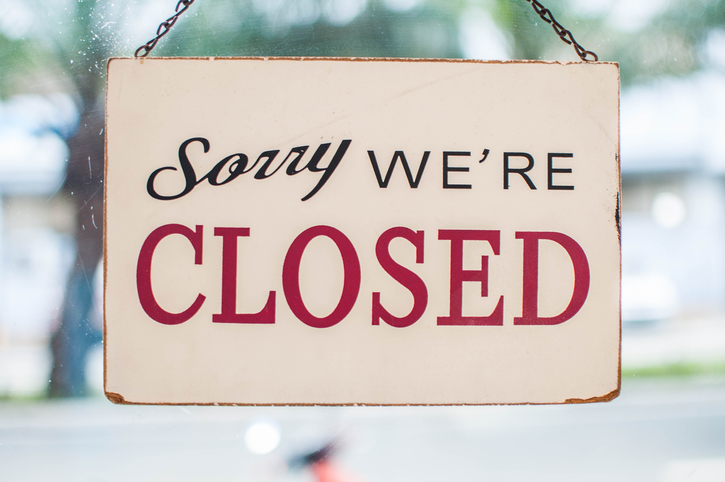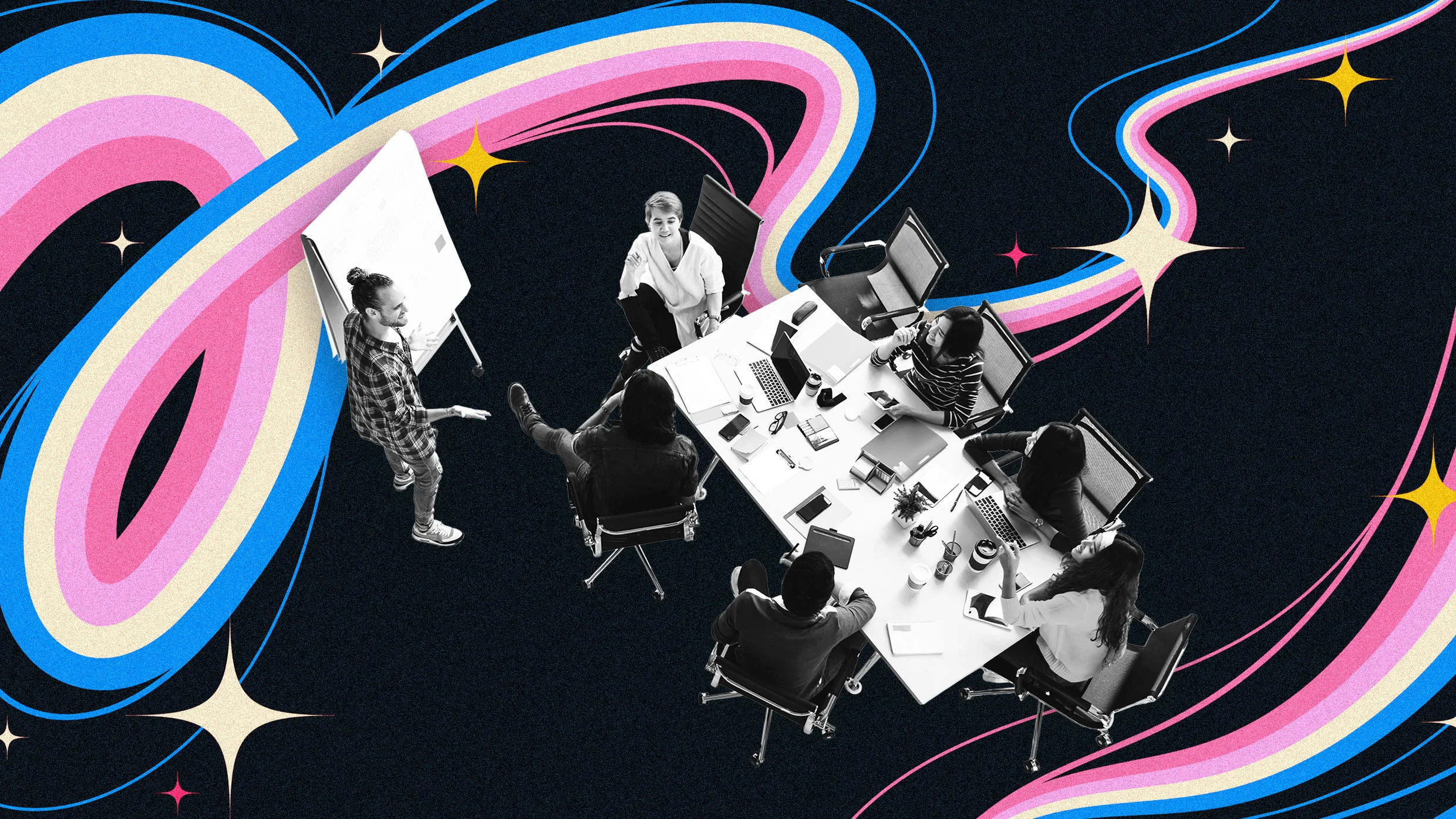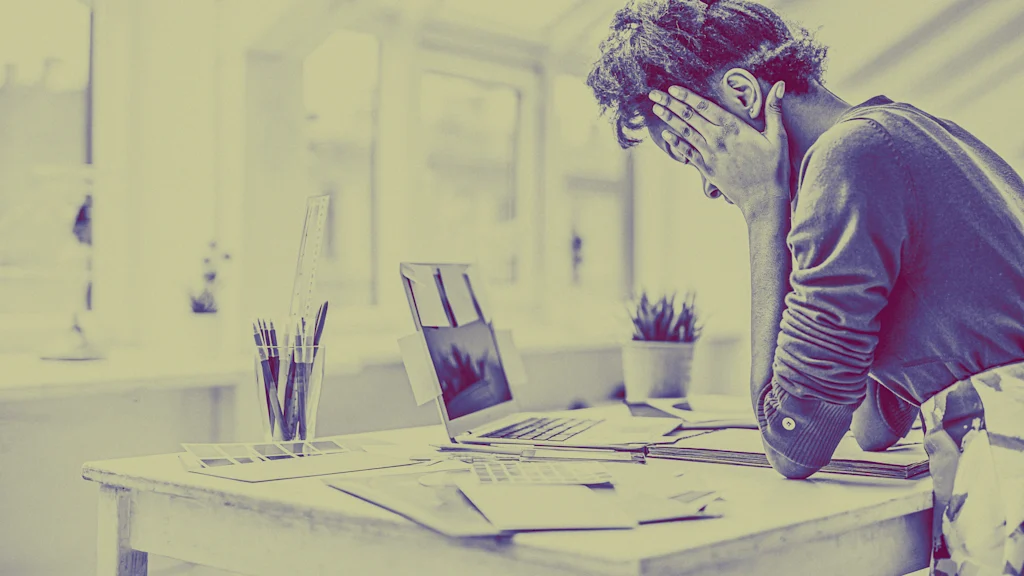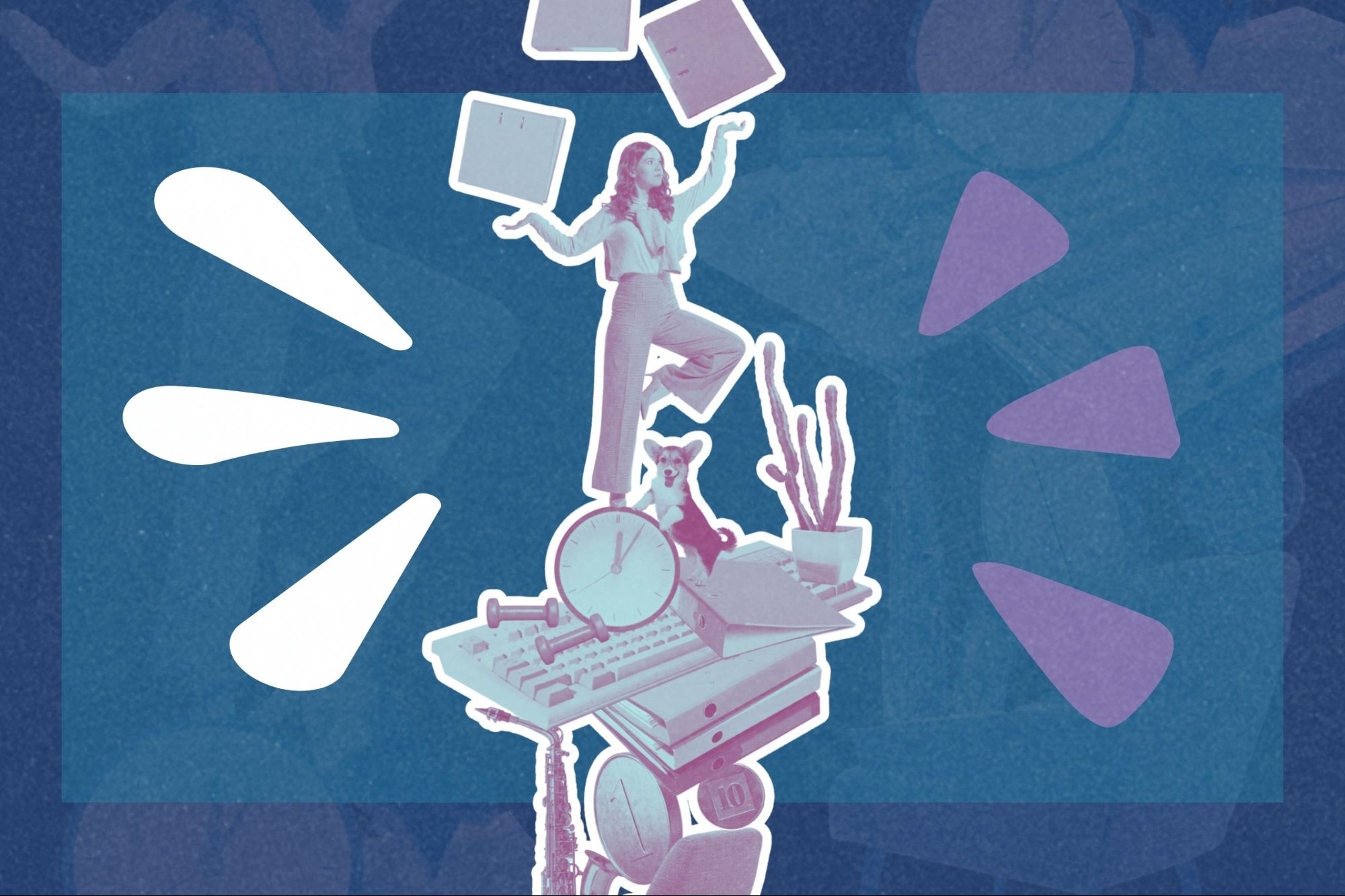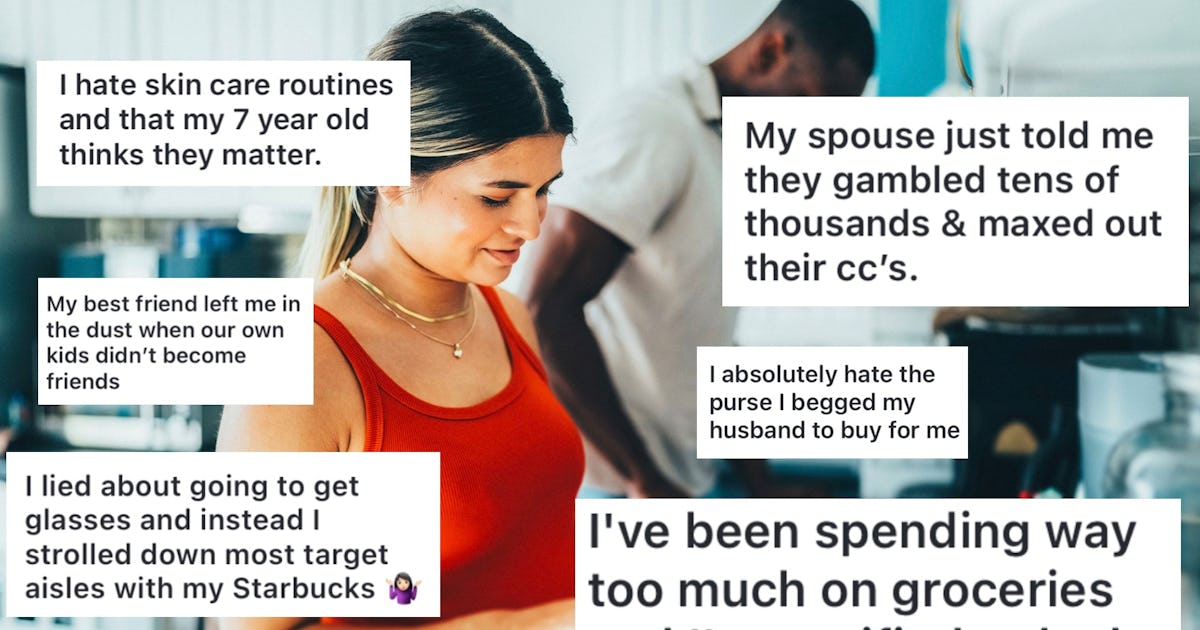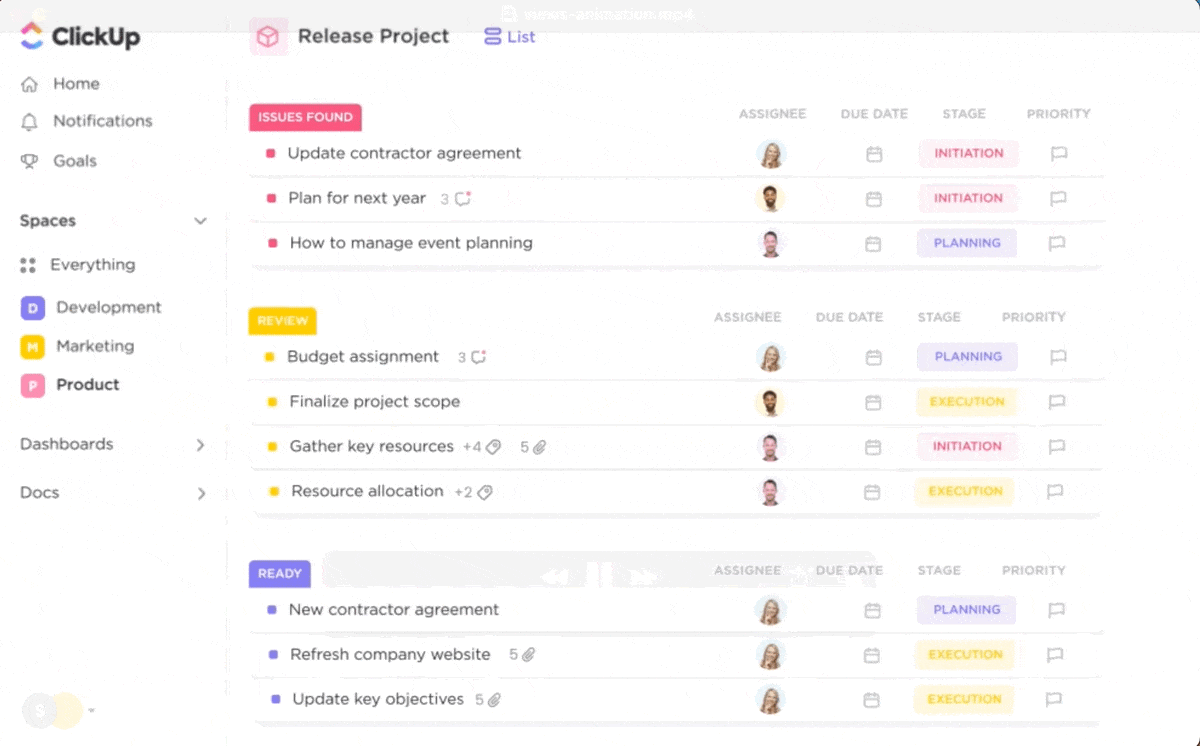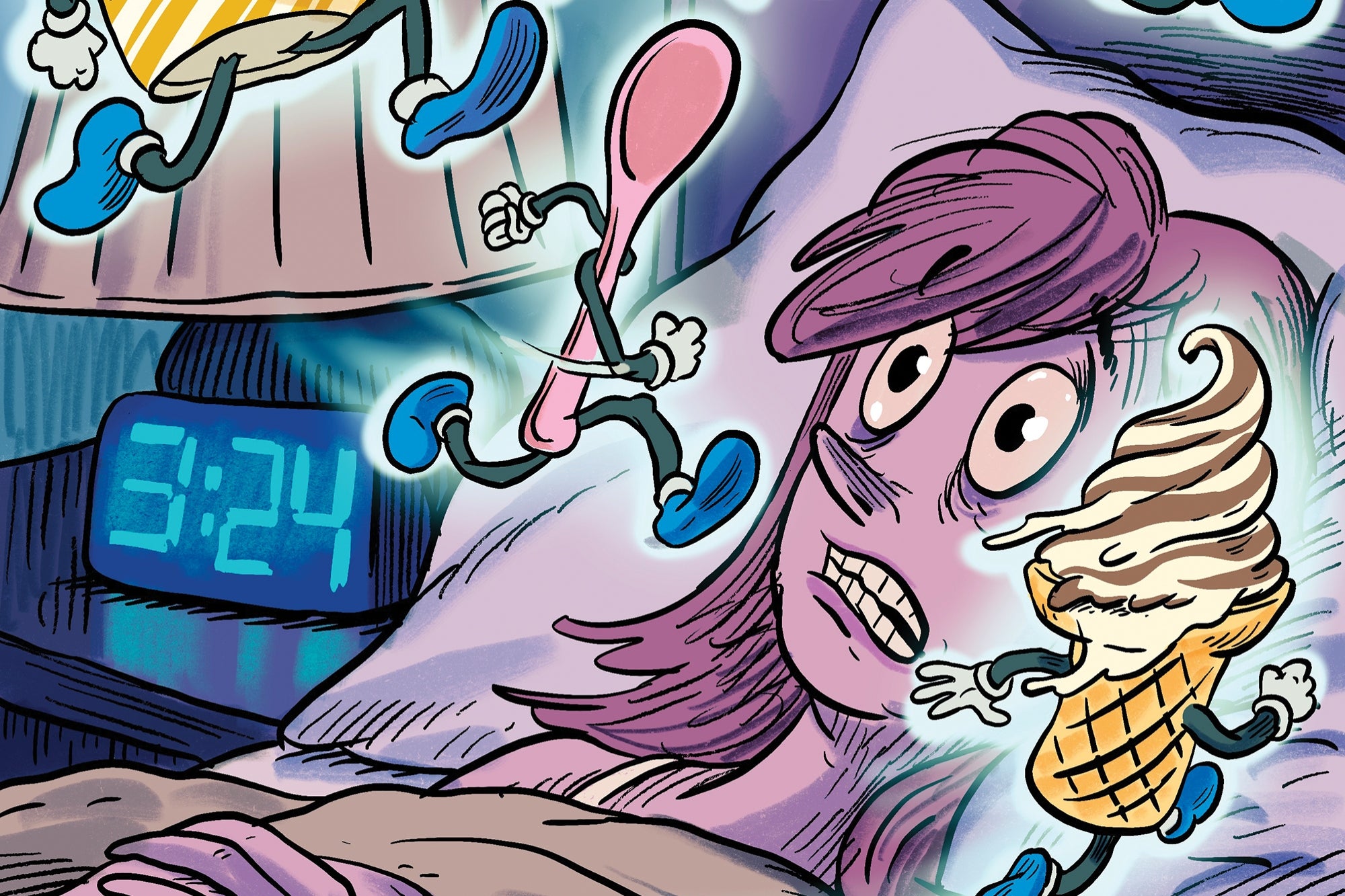#burnout
#burnout
[ follow ]
#work-life-balance #boundaries #productivity #resilience #self-care #career-change #ai-adoption #leadership
fromFast Company
3 days agoAre you trapped in the middle as a middle manager?
I spent several years of my career in the uncomfortable role of middle manager. On one side, I had executives asking me why my team couldn't "do more," and on the other side, my employees told me they were stretched too thin. It was an endless tug-of-war. I was both the enforcer of company expectations and the advocate for my team's needs. At times, my role felt at complete odds with itself. Executives push for efficiency and growth, while employees look for empathy and stability.
Careers
Productivity
fromBusiness Insider
3 days agoAfter years in the corporate world, I changed the way I approached success and started living better
Intentional rituals replace externally driven efficiency and constant pursuing of achievements, refocusing attention on inner wellbeing, meaning, and sustainable productivity.
fromPsychology Today
3 days agoWhy High Achievers Need to Hit Pause Before They Crash
Daniel didn't look like a man falling apart. Pressed shirt. Polished watch. Phone buzzing every few minutes. Yet his hand trembled slightly as he reached for his coffee. "They said it was panic," he said, half whispering. "But it felt like dying." He had just left the ER after his second "heart attack that wasn't." On paper, he was the definition of success: a founder, husband, father. But inside, his mind was spinning at 200 miles per hour.
Mental health
Mental health
fromInside Higher Ed | Higher Education News, Events and Jobs
5 days agoMinor in Holistic Wellness Advances Student Career Wellness
Rutgers' holistic wellness minor trains students in personal well-being, wellness program development, and workplace wellness skills to enhance workforce readiness and community health.
fromTiny Buddha
1 week agoThe Great Horned Owl That Kicked Me Out of Burnout - Tiny Buddha
I was volunteering in raptor rescue, monitoring eagle nests as the busy season ramped up, juggling consulting work, supporting adoption placements, writing, creating. I was showing up fully in every space except the one I lived in: my body. And yet I refused to let go. I told myself it was just a busy season. That if I could push through, things would calm down. That my exhaustion was noble, temporary, necessary.
Mental health
fromBig Think
1 week agoA cure for toxic work
Everywhere I turn - podcasts, research calls, dinner conversations - people are talking about "toxic workplaces." The phrase has become ubiquitous; almost unavoidable. So I did what most researchers do when they're curious (or procrastinating): I Googled it. That led me to a chart showing the term's meteoric rise beginning in the early 2010s. The curve shoots upward like a fever.
Psychology
Business
fromIT Pro
1 week agoHeavy workloads and botched digital initiatives are causing 'transformation fatigue' - and enterprises risk losing top talent if they don't change their ways
Failed or poorly executed digital transformation projects are causing burnout and transformation fatigue, risking the loss of top talent and increased employee turnover.
Music
fromIndependent
1 week agoTim Wheeler on early fame: 'I got hammered during the gig. The next day we were doing MTV interviews but I woke up in my own vomit. Management were really upset'
Tim Wheeler formed Ash at 15, earned recognition for blistering punk-pop songwriting, and later felt he suffered a burnout after the band's first album.
fromwww.theguardian.com
1 week agoGirl boss or tradwife? An economist on how a workforce built for men has failed women
She was embarking on a journey to do it all: a working mom, supporting her family with a career she loved. As track repairs tripled her commute time, things suddenly felt like they were falling apart. Instead of getting home in time to put her baby son to bed, Low found herself sobbing while breast pumping in an Amtrak bathroom.
Women
Books
fromwww.berkeleyside.org
2 weeks agoBanged up in the Battles of Berkeley, her new memoir tells activists how to burn it down without burning out'
Balance activism with personal well-being to avoid burnout while using practical protest tactics, safety protocols, and alternative forms of engagement.
fromwww.esquire.com
3 weeks agoMarc Maron on Bruce Springstein Movie, 'Deliver Me From Nowhere,' Podcast, and What's Next
I'm weird. I can be more open in some ways with audiences than I can in interpersonal relationships. Look, I've lived and learned over time. I've been a toxic person in my life. I'm not great at relationships. I used to do a joke where I think I'm about 85 percent woke and the other 15 percent I keep to myself.
Media industry
fromDataBreaches.Net
3 weeks agoObsession with cyber breach notification fuelling costly mistakes - DataBreaches.Net
Regulations such as the General Data Protection Regulation (GDPR) and the Australian Prudential Regulation Authority's (Apra's) CPS 230 standard have led organisations to become "really obsessed" with the 72-hour notification window following a data breach, according to Shannon Murphy, global security and risk strategist at Trend Micro.
EU data protection
fromPsychology Today
3 weeks agoHow to Lead Change When Nothing Feels Certain
Change experts will tell you to "get clear on your vision" and "communicate the plan." But what happens when you can't predict what next month will bring, let alone next quarter? This isn't a leadership failure. For most of us, it's the new reality. And it requires a completely different approach to how we navigate uncertainty together. Why Traditional Approaches Fall Short
Business
Miscellaneous
fromwww.theguardian.com
3 weeks agoPogacar rules cycling world with total pedal power after brushing off mid-season blues
Tadej Pogacar dominated 2025 cycling, winning Il Lombardia fifth consecutive time, capturing world and European titles despite mid-season burnout and a restorative sabbatical.
Mental health
fromDiscover the Best Podcasts | Discover Pods
4 weeks agoWorkplace Mental Health Podcasts That Don't Suck
Workplace mental health podcasts provide accessible, practical coping strategies and ongoing emotional support for professionals facing stress, burnout, and job-related mental exhaustion.
fromBusiness Insider
1 month agoI quit my corporate job and spent 18 months living on a sailboat. My mindset's completely shifted now that I'm back on land.
In 2020, my feelings about my job as an auditor started to shift. The COVID-19 pandemic had me suddenly working from home, on nonstop Teams calls, and glued to my computer all day. Work felt more stressful than ever, and at the same time, my sense of purpose was gone. I was experiencing chronic migraines and extreme mood swings, and my hair was falling out in clumps. I knew I needed to make a change.
Mental health
fromBusiness Insider
1 month agoFormer US Air Force drone sensor operator says there's no video game on Earth that can prep you for the job
My first strike was January 28th, 2013, at 6:49 in the morning. It ended up being a cave in the middle of nowhere, and there was a handful of people there that they wanted us to take out.
US news
Relationships
fromwww.theguardian.com
1 month agoI was 31, burned out, and single. Would a string of dates with French men bring back my joie de vivre?
A 31-year-old editor burned out in New York moves abroad to reboot life, balancing a stalled writing career, lingering ex-relationship, and new dating.
fromFast Company
1 month agoWhy every manager should have trauma literacy
A decade ago, fresh out of business school, I joined a tech company in my first business development role in Singapore. Within the first quarter, I had closed two quarters' worth of sales targets. But the environment was abusive. The CEO yelled regularly. Personal and sexist remarks were common, on body, appearance, even what women ate or wore. It was triggering. Having lived through a previous abusive situation, I found myself in constant flight-or-freeze mode.
Mental health
fromBusiness Insider
1 month agoA mom who made $250k juggling two jobs in secret shares how she's avoiding her company's 5-day in-office policy
In 2020, Lisa was earning roughly $110,000 a year in a remote, corporate manufacturing role when she received an offer for a hybrid job that paid about $150,000. After talking it over with her husband, she landed on an unconventional solution: Take the new job - and keep the old one, too. For 18 months, Lisa secretly worked two full-time roles, earning roughly $250,000 in 2021 and averaging 40 to 50 hours a week across both jobs.
Business
Careers
fromBusiness Insider
1 month agoI quit investment banking at Citi and professional tennis after burning out. I learned about when to walk away from a job.
Burnout in elite tennis and investment banking prompted reevaluation of priorities, recognition of limits, and the decision to leave unsustainable paths.
fromTiny Buddha
1 month ago3 Tools for Burnout Relief (That I'm Using Right Now) - Tiny Buddha
Burnout has been on my mind a lot lately, and that's saying a lot since my burnout brain has trouble focusing these days. Between working from home while raising two young kids and traveling back and forth across the country to spend time with a sick loved one, I've felt stretched in more directions than I thought possible. I know many of you can relate to the constant push to keep going even when your body and mind are begging for rest.
Mental health
fromwww.bbc.com
1 month agoWhy burnout is a growing problem in cybersecurity
"Many of us in cyber, we put our hearts into our job. There's a lot of passion involved." He had found it progressively harder to sleep, and to go into the office. Tony, who did not want his real name used, recalls the Wannacry ransomware attack in 2017. "It was a Friday and something came up on BBC News." The security team got on a call that evening and the decision was taken to remove every single device from the network.
Information security
fromTODAY.com
1 month agoParenting Confession of the Week: Work Doesn't Know My Secret
I've spent the last year working a full-time corporate job in Human Resources for a Fortune 500 company while caring for my one year old son simultaneously. No sitter, no help. We can't afford daycare, and this is the only way it's been possible for me to remain the primary breadwinner because my husband works outside the house and we don't have family nearby.
Parenting
fromPsychology Today
1 month ago3 Highly Effective Ways to Reclaim Your Power
Fifty percent of people across industries are burned out, uninterested (engagement levels are very low at 34 percent, according to Gallup), overwhelmed, and down. Something feels like it's missing. Something is not quite right. But we can't quite put our finger on what it is. We're stuck. We feel small, overwhelmed, and lost. Especially in this news cycle-this constant barrage of information, entertainment, media, and stress.
Mental health
fromPsychology Today
1 month agoPressing Pause: A Humble Habit to Prevent Burnout
We live in a culture that celebrates speed. We respond to emails at all hours of the day, have packed schedules, and feel pressure to be constantly productive. This drive to keep going is fueled by expectations-our own and others'. Yet when we push beyond our limits, we risk not only exhaustion but also the loss of vital resources like physical and mental health, our capacity for emotional regulation, and strong relationships.
Mental health
fromBusiness Insider
1 month agoWhat started as a hobby is now a full-fledged business - and Michelin-starred restaurants are among my clients
Back then, I was a marketing representative for an asset management firm in Penang, Malaysia. It was a steady job, and I had supportive managers who allowed me to take ownership of my work. It was a client-facing role, and over time, I realized it wasn't the best fit for my personality, even though I learned and grew a lot from the job. After the pandemic, I started feeling burned out. Deep down, I always knew a 9-to-5 wasn't meant to be my long-term path.
Business
fromPsychology Today
1 month agoHow to Create a Life of Impact and Legacy
I believe there are two versions of purpose. Big P Purpose is audacious and goal-oriented. It has an all-or-nothing focus and often leaves us chasing huge, distant outcomes. The end result, more often than not, is anxiety. Little p purpose, on the other hand, is about process rather than goals. It's abundance-oriented. You find things that light you up and simply do them. Failure becomes almost impossible, because the reward is in the doing.
Mental health
fromForbes
1 month agoWhat Is Quiet Cracking? 3 Ways To Fix The Burnout Behind Hybrid Work
Quiet Cracking: Silent Burnout in the Office Unlike " the great detachment", quiet cracking occurs when individuals continue to perform while silently burning out. They attend meetings, meet deadlines, and carry on, but under the surface, stress and exhaustion are eroding their well-being. The numbers tell the story: 90% of workers say their stress is the same or worse than last year. 47% worry about job stability. The average daily commute is now 62 minutes.
Remote teams
fromFortune
1 month agoHarry Potter star Emma Watson paused her career at 29, after 16-hour days turned her into 'an insane person' who couldn't hold a conversation | Fortune
"I just used to completely sacrifice myself for whatever the thing was I was trying to achieve," Watson said on an Episode of "On Purpose" by Jay Shetty yesterday. "Making films, the hours on them are so demanding, that to have your own life alongside that, to have that balance is almost impossible," the star with an estimated $85 million net worth added.
Mental health
fromPsychology Today
1 month agoHow to Excel Without Paralyzing Pressure
Imagine this scenario: Nicola is an athlete who wants to go to the Olympics in 2028. She couldn't be more motivated and is optimizing her whole life around it. In all aspects of training, sleep, diet, and mindset, she's aiming to make every marginal improvement she can. But already, three years out, she's beginning to unravel. When she doesn't set a personal best each race, underperforming her expectations results in crushing depression, anxiety, and second-guessing her every move.
Mental health
fromBusiness Insider
1 month agoThe responsibility of being the oldest child can be a lot
There were times during my childhood when I remember being exhausted by the antics of my energetic, spontaneous younger sister and sensitive younger brother. With three kids, there was also almost always a two-against-one situation. I was either paired up with a kid who would do my bidding, or I was the enemy of the younger two, when my demands got to be too much.
Parenting
fromBusiness Insider
1 month agoWe don't need more rigid screen rules and detoxes from phones
I was standing there, frozen in front of the shelves, phone in hand, scrolling through food lists that led to recipes that sucked me into the latest health trends. Ten minutes earlier, I'd come in for a bottle of almond milk. Now I was knee-deep in articles about the "five fruits to reverse aging" and a thread debating which pasture-raised vs organic eggs. My cart sat empty, my body stood still, but my thumb kept moving.
Mental health
Mental health
fromwww.theguardian.com
1 month agoI'm exhausted but am surviving. How can I heal from burnout without expensive time off? | Leading questions
Recover from burnout by using gradual, income-preserving strategies: boundaries, task restructuring, low-cost rest rituals, job-search batching, and self-compassion.
fromTODAY.com
1 month agoDrew Barrymore Shares 1 Piece of Advice She's Passing Down to Her Kids: 'It Changed My Life Forever'
"If you're not good to someone, you will not only ruin their day, but guess what: You're going to feel really bad about yourself. So nix that behavior. "And I've taught them that if you clean up after yourself, you're going to have more calmness in your space," she added. "Your head is as messy as your room is. Someone said that to me, and it changed my life forever."
Television
fromwww.theguardian.com
2 months agoThe one change that worked: I sobered up and started to listen to what my body was telling me
Most of my adult life has revolved around music: clubs, bars, festivals, house parties anywhere I could dance to loud music. I loved how energising and cathartic it was to get immersed in it, to lose myself a little and move my body expressively without judgment. I'd get so absorbed that I would lose track of time; once, at Burning Man, I was awake for 36 hours exploring the festival, meeting new people and partying.
Mental health
Startup companies
fromBusiness Insider
2 months agoI burned out after working at Deloitte, Salesforce, Yelp, and Cruise. The pressure was unsustainable, so I quit corporate.
Jessica Yen quit high-pressure tech roles after burnout and built businesses that offer creative freedom, autonomy, and personally meaningful work despite higher risk.
[ Load more ]

